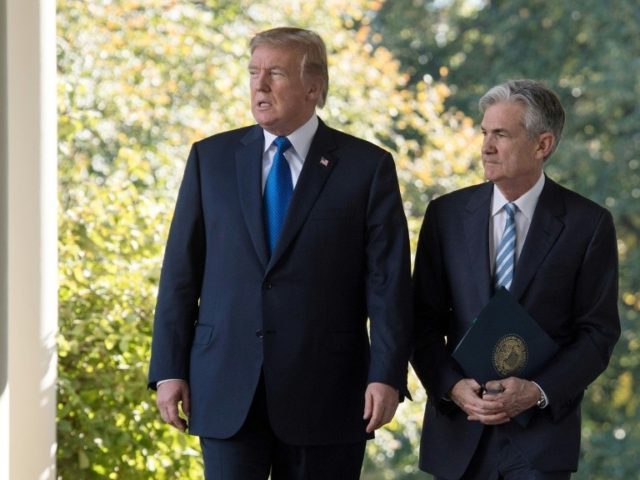Federal Reserve chair Jerome Powell firmly rejected the idea that central bankers should allow economic conditions to deteriorate in order to avoid enabling trade policies they thing may be a drag on the economy or to influence the outcome of presidential elections.
“We don’t do trade policy,” Powell said Friday. “Our obligation is to use our tools to support the economy.”
Powell appeared to be responding to a pair of op-eds from the former president of the New York Fed, William Dudley. In a Bloomberg Opinion piece, Dudley argued that Fed officials should fight against Trump’s trade policies by not supporting economic growth.
“Officials could state explicitly that the central bank won’t bail out an administration that keeps making bad choices on trade policy, making it abundantly clear that Trump will own the consequences of his actions,” Dudley wrote in an opinion piece for Bloomberg.
Dudley went even further, arguing that the Fed should consider the outcome of the 2020 elections when making monetary policy, indicating that the Fed should create an economic slump if that would help defeat Trump.
“Trump’s re-election arguably presents a threat to the U.S. and global economy,” Dudley wrote. “[I]f the goal of monetary policy is to achieve the best long-term economic outcome, then Fed officials should consider how their decisions will affect the political outcome in 2020.”
While Dudley’s remarks caused shock it was not because they were particularly new. Pundits and some Wall Street economists have been saying for months that the Fed was “enabling” Trump’s trade policies by continuing to support economic growth. But no current or former Fed official had ever gone this far.
After Dudley’s initial column ignited a firestorm of criticism from economists and push back from the Fed itself, Dudley responded with an unapologetic second op-ed arguing that “the Fed needs to be cautious that it does not inadvertently enable the president’s trade war with China.”
Legally, the Fed is obligated to pursue maximum employment and price stability without regard to whether it approves of the economic policies adopted by the President or Congress. In practice, this has meant that the Fed does indeed offset or “enable” policies adopted by elected officials that risk weakening the economy or pushing inflation too high.
Without referring directly to Dudley, Powell said his response to the idea of the Fed making policy with the 2020 election in mind was “absolutely not” and described it as a “hard no.”
“Political factors play absolutely no role in our process, and my colleagues and I would not tolerate any attempt to include them in our decision-making or our discussions,” Powell said. “The Fed remains strongly committed to nonpolitical decision-making. We serve all Americans regardless of party. It’s simply wrong. The idea that we would deviate from that is simply wrong,”
Powell, who was speaking at an international policy institute in Switzerland, also said that the Fed remained committed to keeping the economic expansion going, adding that he believed the U.S. would continue to grow and was not in serious risk of a recession.
“We’re going to continue to act as appropriate to sustain this expansion,” Powell said in a remark that many interpreted as signaling that the Fed is likely to cut interest rates when it meets later this month.
Powell was upbeat about the economy, saying the labor market was in a “quite strong” position. The main risks to ongoing expansion, he said, were slower global growth, uncertainty around trade policy, and low inflation.

COMMENTS
Please let us know if you're having issues with commenting.